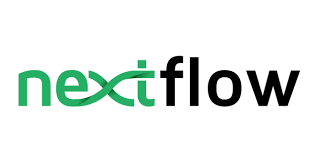Advanced Stream
Click Introductory stream to access the introductory stream training materials
Intended audience:
Beginner - intermediate level bioinformaticians working with next-generation sequencing data for disease surveillance on the African continent
Purpose:
High-throughput laboratory machines generate large quantities of primary biological data. Processing these data to generate useful information involves several tools and setting up of complex bioinformatics environments across heterogeneous computing infrastructure. Bioinformatics workflow managers provide portability and reproducibility of analysis and optimization of available computing resources.
The Advanced Bioinformatics workflow workshop was aimed at introducing and deploying Nextflow, a tool that enables scalable and reproducible scientific workflows.
Pre-requisite:
- For the course, access to a high-performance computer was organised by trainers
- Venue of course: KEMRI / WELLCOME TRUST Kilifi, Kenya
- Start date: 2023-03-27
- End date: 2023-03-31
- Day 1 HPC and introduction to containers
- Day 2 Introduction to git and file organisation
- Day 3 Introduction to snakemake
- Day 4 Advanced workflows (Nextflow, CWL)
- Day 5 Practical application
- Day 1 slides & files
- 1.0 Get started working on HPC
- 1.1 Confirm participant streams
- NGS Academy/UCT
- Tony Li
- Kirsty Lee Garson
- 1.2 Advanced python
- 1.3 Writing your own classes
- 1.3.1 Lecture & Practical
- Malawi-Liverpool-Welcome Trust
- Dr Philip Ashton
- 1.3 Advanced Python cont..
- 1.3.2 Writing your own classes
- Malawi-Liverpool-Welcome Trust
- Dr Philip Ashton
- Day 2 slides & files
- 2.0 Advanced python
- 2.1 Using common bioinformatics modules (Bio python )
- 2.2 Lecture and practical
- 2.3 Best practices
- Malawi-Liverpool-Welcome Trust
- Dr Philip Ashton
- 2.2 Scientific talk
- KEMRI
- Dr Charles Sande
- 2.3 Nextflow.
- 2.4 Introduction to Nextflow.
- 2.5 Channels
- 2.5 Processes
- ILRI
- John Juma
- Day 3 slides & files
- 3. Nextflow
- 3.1 Simple RNA-seq1 pipeline
- 3.2 nf-core pipelines
- 3.3 nf-core tools
- ILRI
- John Juma
- 3.6.0 Advanced containerisation.
- 3.6.1 Singularity
- 3.6.2 Creating your singularity container
- 3.6.3 Working with singularity and the HPC
- KEMRI
- Dr George Githingi
- Day 4 slides & files
- 4.0 Advanced python
- 4.1 Compare and contrast with snakemake
- Malawi-Liverpool Welcome Trust
- Dr Philip Ashton
- 4.2. Practical project work
Select a Bioinformatics paper from the collection below, and design a workflow to replicate it. What will you use - conda, docker, snakemake? What tools will you need? Are they available via those channels? - Malawi-Liverpool-Wellcome Trust
- KEMRI
- ILRI
- Dr Philip Ashton, Belson Kutambe
- John Juma
- 4.3 Practical project work cont...
- ILRI
- KEMRI
- John Juma
- Dr George Githinji
- Practical project on implementing your own workflow
- KEMRI
- Malawi-Liverpool-Wellcome Trust
- Dr George Githinji
- Dr Philip Ashton
The course will cover:





Logistics:
| Session | Course materials | Training partner | Interactive Sessions with Instructor/s |
|---|---|---|---|
| 9:00am-10:30am
|
|
||
| 10:30am-1:00pm
|
|
||
| 1:00pm-5:00pm
|
|
| Session | Course materials | Training partner | Interactive Sessions with Instructor/s |
|---|---|---|---|
| 9:00am - 10:30am
|
|
||
| 10:30am - 1:00pm
|
|
||
|
2:00pm - 5:00pm |
|
|
| Session | Course materials | Training partner | Interactive Sessions with Instructor/s |
|---|---|---|---|
| 9:00am - 10:30pm
|
|
||
|
2:00pm - 5:00pm |
|
|
| Session | Course materials | Training partner | Interactive Sessions with Instructor/s |
|---|---|---|---|
| 9:00am - 10:30am
|
|
||
| 10:30am - 2:00pm
|
|
||
| 2:00pm - 4:00pm
|
|
| Session | Course materials | Training partner | Interactive Sessions with Instructor/s |
|---|---|---|---|
| 9:00am - 1:00pm
|
|